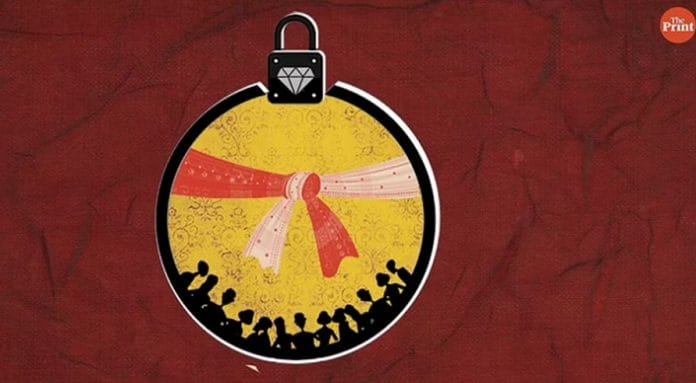New Delhi: The Karnataka government has supported the state High Court verdict that refused to quash a rape case against a man who is facing charges of keeping his wife as a “sex slave” and “sexually assaulting her brutally”.
In an affidavit filed before the Supreme Court last month, the Bharatiya Janata Party (BJP)-led government in the state supported the man’s prosecution for marital rape and added that the allegations made by his wife squarely get covered under section 375 of the Indian Penal Code (IPC), which deals with the offence of rape.
On 23 March, the High Court had refused to drop criminal proceedings against the accused.
The state referred to the HC judgement that took note of the amendments made to section 375 on the recommendations of Justice JS Verma Commission, which was set-up in the aftermath of the Nirbhaya case. The amended law widened the definition of rape under IPC.
“From the bare reading of the amended provision of Section 375, the complainant clearly invokes the amended provision. Hence, the said point is held in favour of the prosecution and against the petitioner,” read Karnataka government’s reply in the Supreme Court.
The affidavit was submitted in response to a petition filed by the husband challenging a 23 March verdict of the Karnataka High Court that refused to quash the FIR against him.
After noting the ‘brutality with which he sexually assaulted his wife’, the HC had ruled out protecting the husband under the exception clause of section 375 (2) IPC that says a man cannot be charged for the rape of his wife, unless she is below 15 years of age.
“The exemption of the husband on committal of such assault/ rape, in the peculiar facts and circumstances of this case, cannot be absolute, as no exemption in law can be so absolute that it becomes a licence for the commission of a crime against society,” the high court said.
In addition to rape, IPC sections dealing with unnatural sex (section 377), dowry harassment (498A), molestation (354) and criminal intimidation (506) have been invoked against the man.
He is even charged with sections under Protection of Children from Sexual Offences Act (POCSO) for allegedly assaulting his daughter.
While the man has raised the argument that he was legally exempt from rape charges under section 375 (2) IPC, the state has not advanced any legal proposition on this subject, except for stating that his actions fall within the purview of the existing rape legislation.
Also read:
Debate over marital rape
Karnataka’s stand to defend its move to register a rape case against the man comes at a time when the debate over exception to marital rape is pending in the top court.
Following a split verdict between two judges of a Delhi High Court bench, the issue is now awaiting a final adjudication before the apex court.
On its part the Central government had opposed a batch of petitions in the Delhi HC, seeking to declare section 375 (2) IPC unconstitutional.
The state has further said that the contents of the complaint coupled with the complainant’s statements recorded during the police investigation show that the man’s contentions lack merit and that the allegations are made out.
With regard to section 377 IPC, the state submitted that the complaint and police chargesheet “clearly reveal that the petitioner has indulged in the act of unnatural sex.”
“Therefore, the charges framed have to include section 377 IPC also,” the state said, adding the HC had rightly directed the trial court to include this section while framing charges against the accused.
According to the state, the HC was correct in even holding that the allegations and also written communications of the child – which could not be extracted and made a part of the order – would require a trial against the man for him to come out clean by projecting his defence.
“Under circumstances, a full-blown trial is necessary,” the state submitted in defence of the HC verdict.
Also read: ‘Same expert as Nirbhaya case’ — govt plea against SC clean chit to Chhawla rape-murder convicts






